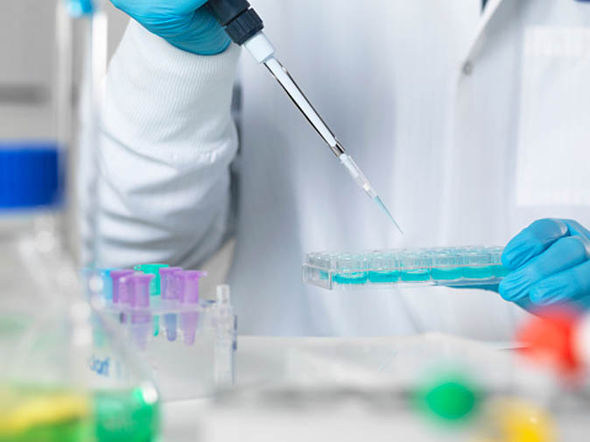PATRICIA and Neil Rapp are busy planning a dream holiday to Australia, where they met at the age of 23, to celebrate their ruby wedding anniversary.
The trip has a special significance for the couple, not only because they met in Sydney. Until recently they were unable to plan too far ahead because Patricia was suffering from kidney cancer, a condition that kills 4,300 people every year in the UK.But thanks to a breakthrough drug that works by harnessing the body's immune system, Patricia from Epsom, Surrey, who has had tumours on her kidneys, pancreas, lungs and liver, has made an astonishing recovery. "I plan ahead with confidence now," says the GP practice nurse, 66. The new drug called nivolumab has produced successful clinical trial results in prolonging life in patients often given just a few months to live. The treatment is an immunotherapy that works by energising the body's defence system to recognise and attack cancer cells. "It unmasks the cancer so it is visible to the immune system and this is a completely new way of treating it," says Dr James Larkin, consultant medical oncologist at the Royal Marsden Hospital, who led the British part of the trial.
"It is a landmark because 10 years ago we were just using blunt immune-stimulating treatments that had side-effects and helped a limited amount of patients. Now we have these trial results demonstrating its efficacy. There is no doubt it is a big deal." Kidney cancer is difficult to diagnose because symptoms are mild which means that many patients only start treatment when it is at an advanced stage and the survival rate is poor. But after taking nivolumab, two huge chemotherapyresistant tumours on Patricia's liver virtually disappeared within nine months and she is now beyond the two-year mark of her treatment. The treatment means she can enjoy time with her two granddaughters Macy, aged four, and 16-month-old Molly. "When I had my pancreatic cancer diagnosed my first thought was that I wouldn't see any grandchildren," says Patricia.
"I was thrilled when Macy was born after my lung operation and Molly has been a real bonus. "You do think about your mortality when you are hit by something like this. I feel my life has been prolonged and have more hope because I feel fine and I'm doing well." Patricia enjoyed a healthy life until the kidney cancer was picked up by an ultrasound test 20 years ago when her children Ben and Meghan were 16 and 13. "I had no symptoms and the test was a check on my womb but they spotted a swelling on my right kidney," she says. "It was renal cell carcinoma and it came like a bolt from the blue. "It was a tough time with the kids being teenagers but my family were very supportive and after three months off I went back to work as a family planning nurse. I had check-ups every six months and nothing showed up so after seven years they decided I was fine. I certainly felt well." But seven years later a tumour was found on her pancreas after she started to lose weight. It had to be removed along with her spleen and analysis revealed that it was secondary renal cancer. Patricia recovered and continued to have check-ups but a year later another tumour appeared on her left lung. Specialists monitored its progression for a year and then operated to remove the latest spread of renal cancer. She again had regular check-ups and despite carrying on with her job and feeling fine the disease flared again in her liver. "I had chemotherapy for six months but the tumours doubled in size. We were pretty desperate because the chemo caused side-effects. "The soles of my feet became very painful, I had skin problems and swollen eyes. It was very unpleasant and so dispiriting when, after all that, it didn't work at all. It was a bleak time." Nivolumab has been awarded "breakthrough status" in the US which speeds up the approval process but it may take up to two years before it is available on the NHS, when it will probably be offered to patients who fail to respond to current drugs. Patricia now receives a fortnightly dose of nivolumab via a 60-minute IV drip and there is no sign of the cancer returning. "It's like a miracle, the CT scans haven't detected anything on my liver for 15 months. I have been extremely lucky and feel really blessed because I didn't think I would ever see my granddaughters," she adds. "I have no restrictions on my life because I'm on the trial and I feel very fortunate."
When I had my pancreatic cancer diagnosed my first thought was that I wouldn't see any grandchildren
 |
| Patricia Rapp alongside her daughter Meghan |


Post a Comment Blogger Facebook Disqus